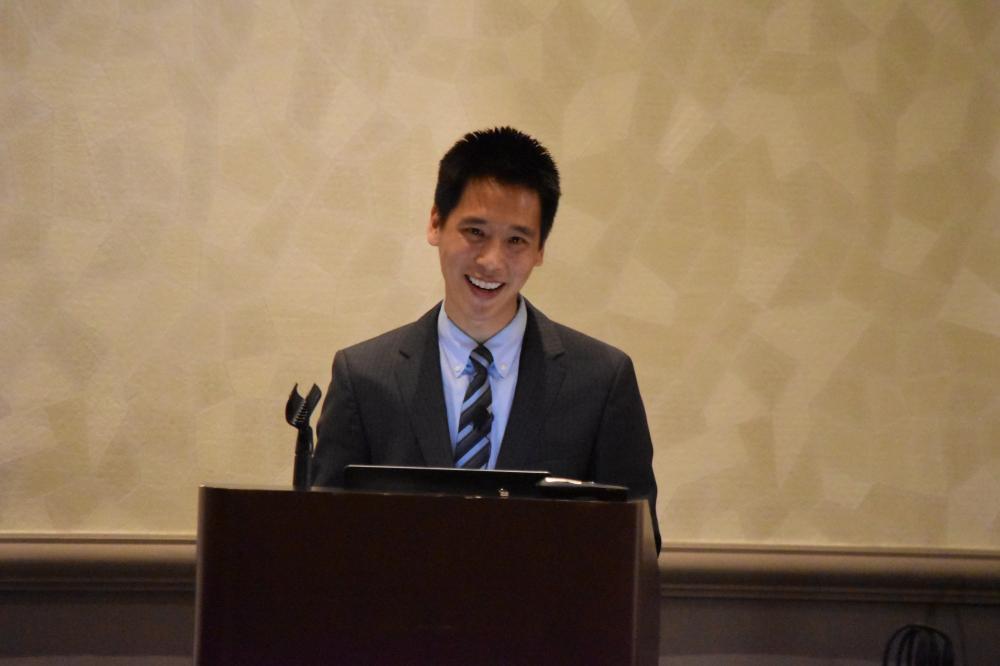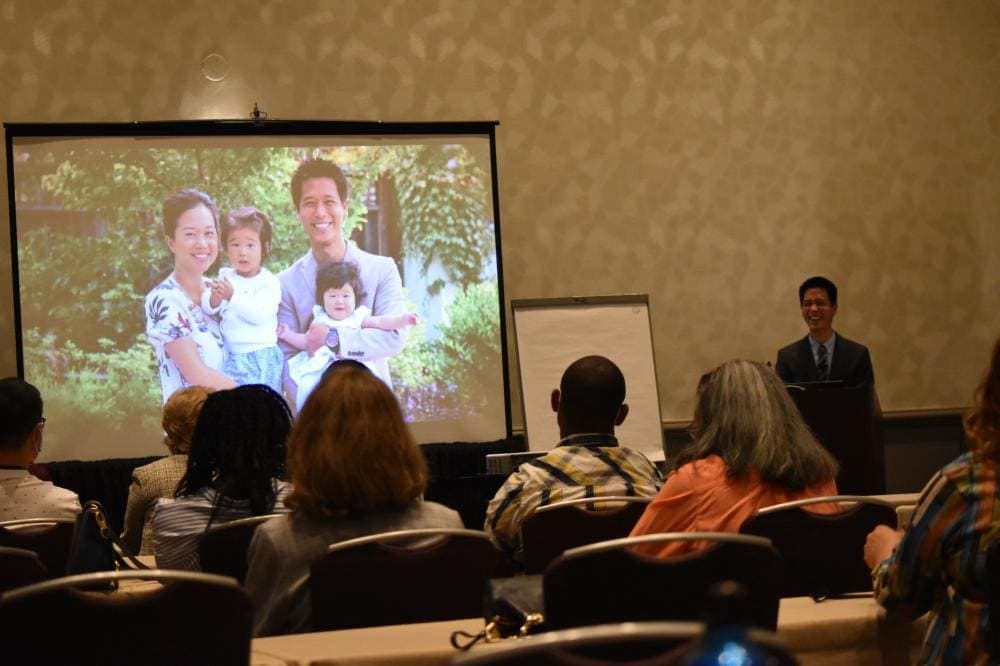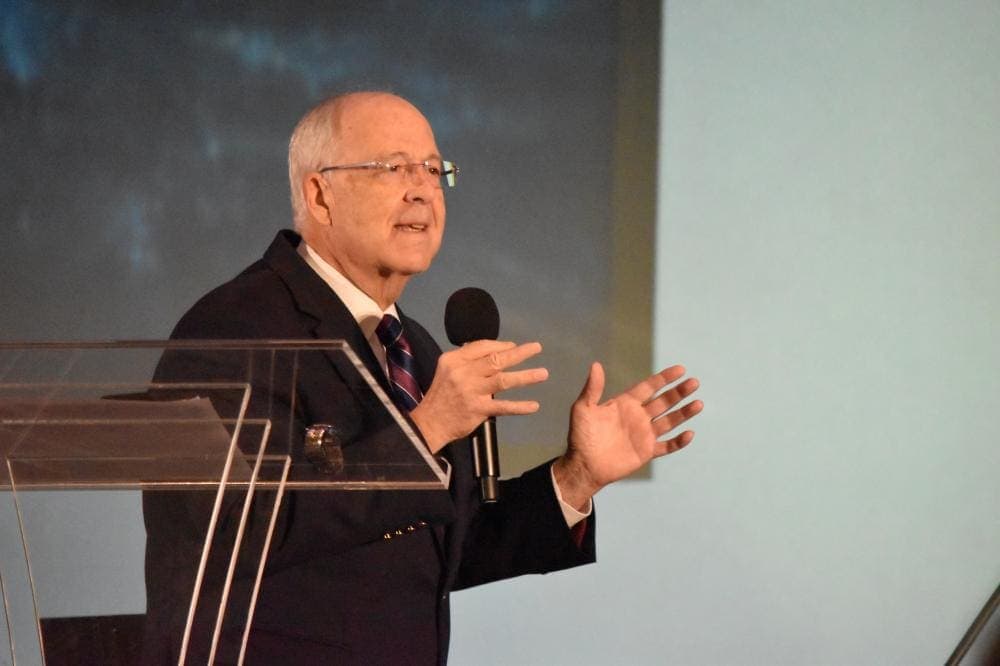Jeffrey Cho shared “how the Lord is leading at Haiti Adventist Hospital” and discussed how medical missionary work, as described in Isaiah 58 in the Bible, is critical to the success of the Adventist Church’s mission, during a breakout session at the Adventist Medical Evangelism Network (AMEN) conference in Indian Wells, California, United States, on October 29, 2021.
Cho is assistant medical director at Haiti Adventist Hospital (HAH) in Carrefour, Haiti. A family and preventive medicine physician, Cho and his family moved to Haiti in 2019. They are currently in the United States waiting for Haiti’s national situation to change.
“I should be there right now,” he said, “but we’re in the U.S., waiting to see where the Lord leads us next.”
How to Meet a High Level of Needs
Cho said that when his family moved to Haiti in December 2019, he was struck by the level of need that was present everywhere.
“I had never lived in a place where the needs for the basics of life were so apparent — clothing, shelter, education — the needs were endless, and so were the requests for help from staff, day workers, patients, and the community. I wasn’t sure how to help them in a way that was helpful,” Cho acknowledged.
He explained that while he was seeking guidance to meet those needs, he felt the Lord leading him to a compilation of writings by Adventist Church co-founder Ellen G. White called Welfare Ministry. The book’s foreword, Cho said, talks about “the delicate work of reaching hearts and winning souls through neighborly kindness.” He shared how he and his staff began to meet every Saturday (Sabbath) to discuss two chapters per week, trying to find ways of putting what they read into practice.
A Divine Prescription for Every Member
Cho’s group found in chapter 3 of Welfare Ministry how Isaiah 58 is key to understanding the role of medical missionary work. Isaiah 58 discusses what kind of sacrifices God expects His children to make as they reach out to others in need.
It shows, Cho said, that not only health practitioners but every Adventist church member can get involved in this ministry. “ ‘The Master’s holy work was a benevolent work. Let our people everywhere be encouraged to have a part in it,’ ” he read from White’s book.



Cho added that medical missionary work is “a two-edged blessing” because “it blesses those who do it, and it blesses those who receive it.” And “it’s a ministry that God has ordained to awaken His people to help a hurting world.”
He felt that the promises of Isaiah 58 were fulfilled after the most recent earthquake in Haiti.
“Our hospital was flooded with patients, people were in the halls, on the floors, people were sleeping on our lawn. We were well over capacity. The days were packed from sunrise to sundown. These were some of the most intense days of my life,” he said.
But it was on those most challenging days when he was able to value most the power of medical missionary work to bring people to a life of faith in Jesus.
Medical and Gospel Ministry Combined
For medical missionary ministry to be successful, Cho said, it needs to be combined with gospel ministry; in White’s words, the two must be “bound together.” White also wrote in Christian Service that in Jesus’ ministry, “healing and teaching were closely linked together. Today they are not to be separated” (p. 133).
Cho explained, “Without the gospel, it’s just medical work. In my experience, it’s very easy to do [mostly] medical work.”
Adventist doctors are often missionaries by nature, Cho said, but there are some roadblocks. “The desire to share with our patients is there, but we also don’t want to fall behind in clinic, and we like to [finish our paperwork], clean our baskets, and get home at a decent time.” Sometimes the mission part takes a back seat, he said.
“In Haiti, I had more control over my schedule,” Cho said, “but even as a missionary doctor, I’ve found that I spend most of the time doing medical work. Yes, I pray with patients, I pray before meetings with staff, I tell people, ‘God bless you.’ However, in my day-to-day, it is still so easy to get caught up in hospital work that the missionary part of medical missionary ministry is often neglected,” he acknowledged.
Flying over an ocean doesn’t make you a missionary, Cho noted. “The way we work and prioritize here [in our home countries] doesn’t automatically change when we are living and working in the mission field,” he said.
Isaiah 58 Informs Adventist Health Practice
Isaiah 58 is related to medical missionary work because it shows how to reach and help others, Cho said. “It’s about freeing people from bondage, removing burdens, providing food,” he said. “But freeing people from the bondage of poverty, fear, insecurity is harder to address due to the systemic nature of the problem. It's not a quick fix.”
And there are different levels of sacrifice, Cho said. “It’s not the same to share your food when you know you have more in your fridge as it is to share when you know you'll go hungry as a result.”
And what about sharing your home with a stranger who needs a place to stay?
“At [Haiti Adventist Hospital],” Cho noted, “I have known more than one family of our staff members who … have taken a person needier than themselves and provided them with a place to stay. It blows my mind to think how big the hearts of my colleagues at Haiti Adventist Hospital are.”
An Example of Selfless Service
Toward the end of his presentation, Cho shared the story of Patrick, a Haitian medical missionary who spends his own time visiting, talking, and praying with patients. Cho told how Patrick came once to a room where a patient had soiled herself and needed a diaper. “If I had been there, I would have thought, ‘Aw, we came at the wrong time!’ ” Cho said. “Outwardly, I would have done the right thing, but it wouldn’t have been with enthusiasm.”
But Patrick’s genuine reaction was, “I am so glad that we came at the right time to help her!” Cho explained, “His reaction exemplifies a genuine love for others that can only be found with Jesus in the heart.” And he summarized, “Medical missionary work is sacrificially helping others out of love to bring them to Jesus. Medical missionary work is a lifestyle.”